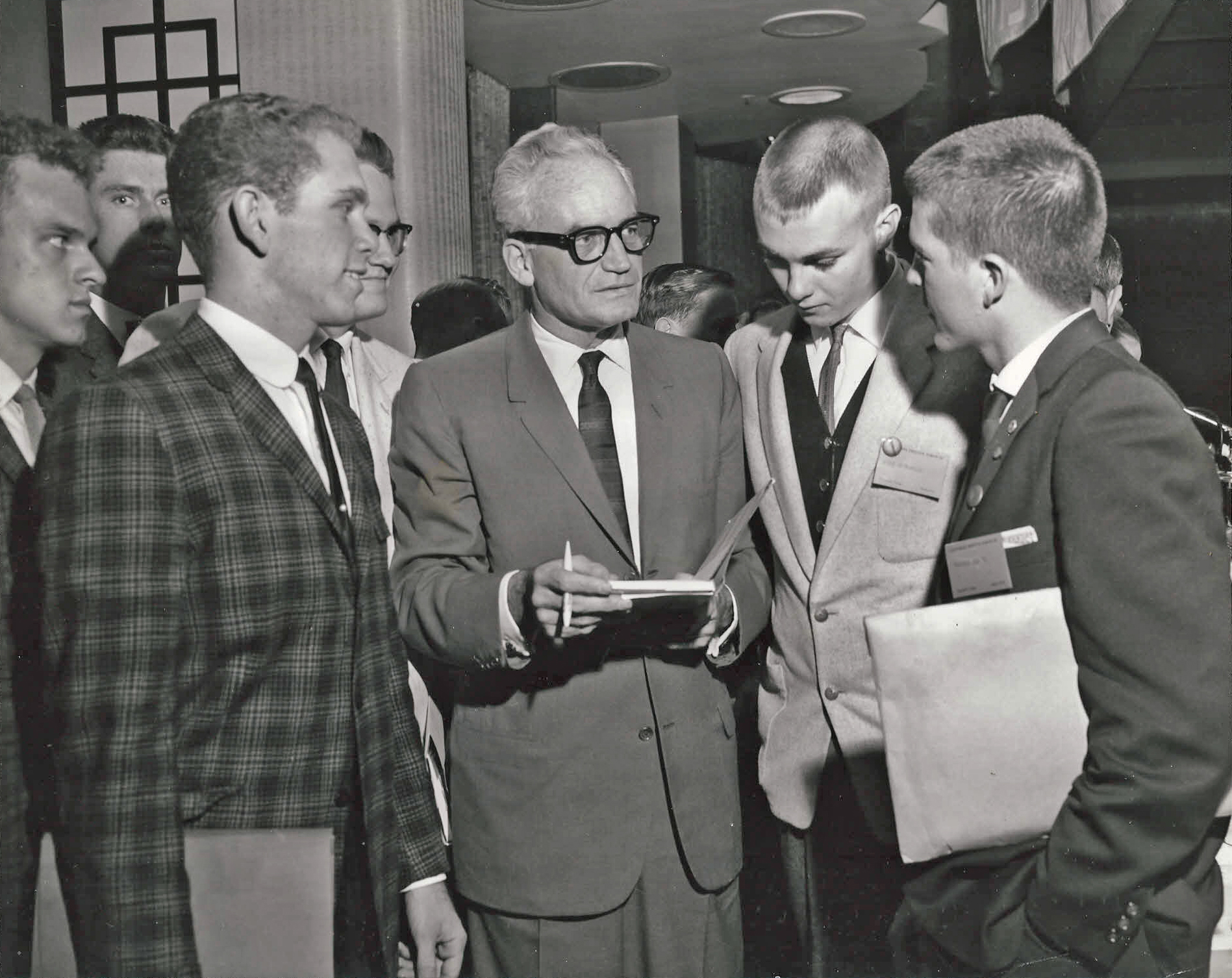
Todd, It is perfectly appropriate for you to ask the sources of our views at Berkeley that Goldwater did not support the war in Vietnam. That was 60 years ago and I am afraid I can’t provide as clear an answer as I would like. But thank you for providing it in Chapter 10 of Goldwater’s “Conscience of a Conservative”. My senior year in high school was spent living with a German family in Rasdort/Huenfeld walking distance from the East West German border. This feed my understanding of the East West conflict. When I returned to Bakersfield in 1960 a friend gave me a copy of Goldwater’s book and a light went off. I immediately became a big Goldwater fan. In the picture below (1963 or 4 or so) I am on the far right. Goldwater’s highest purpose for our foreign policy was preserving our freedom. He argued that this required wining the Cold War against the USSR (victory). Quoting for chapter 10 you so helpfully sent us: "We do not, of course, want to achieve victory by force of arms. If possible, overt hostilities should always be avoided;” "We must—as the first step toward saving American freedom—affirm the contrary view and make it the cornerstone of our foreign policy: that we would rather die than lose our freedom.” "In the future, if our methods are to be in tune with our true objectives, we will confine foreign aid to military and technical assistance to those nations that need it and that are committed to a common goal of defeating world Communism.” I did not and do not agree with Goldwater’s criticism of Eisenhower’s Cultural Exchange Program. His approach to the USSR would not, in my view, be appropriate today (e.g., against China). |
Warren Coats 1211 S Eads St. #2101 Arlington VA 22202 Mobile 703 608-2975 http://wcoats.blog/ http://works.bepress.com/warren_coats/ https://twitter.com/wcoats2
|
Attachment:
Chap. 10, The Conscience of a Conservative.pdf
Description: Adobe PDF document